Strictly Personal
Access to Information, NGO and Media Regulation In Zambia, By Isaac Mwanza
Published
1 year agoon
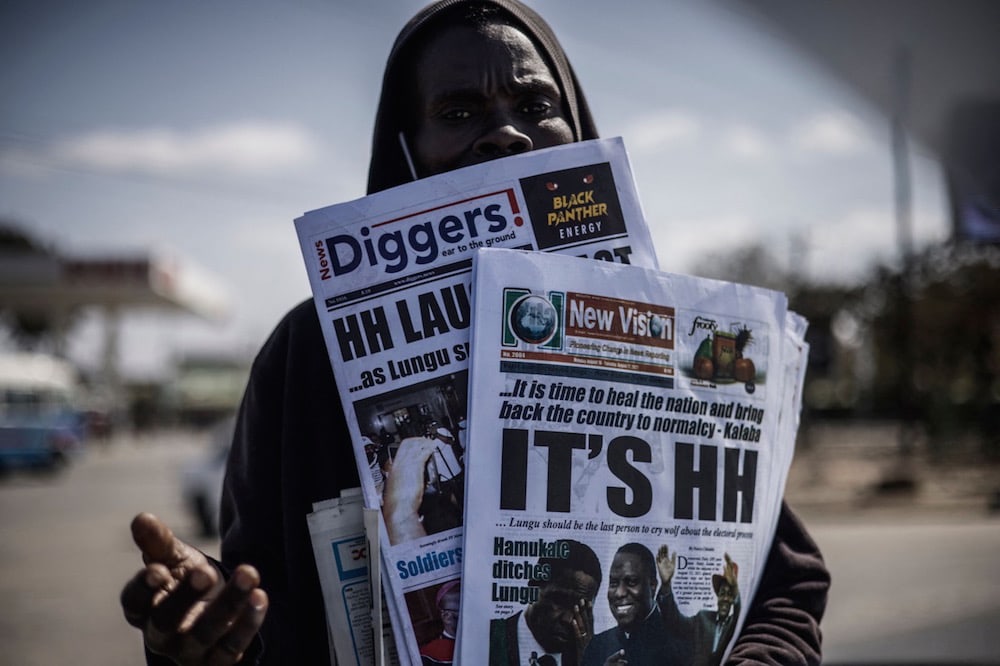
In Zambia, the questions of access to information (ATI), regulation of non-governmental organisations (NGOs), and the media have been a thorny generational issues which provokes personal, political, and professional debates as well as resistance from those likely to be affected by such pieces of legislation.
RELATIONSHIP BETWEEN ACCESS TO INFORMATION AND MEDIA REGULATION
Speaking when he featured on Hot FM Radio’s breakfast show in January, 2023, Zambia’s Justice Minister Mulambo Haimbe, S.C. said Zambians should expect progress on the enactment of the Access to Information Bill once the media themselves, resolve the issue of self-regulation, a matter that didn’t sit well with some media houses.
The Minister’s proposition obviously raises the question as to whether there is any link between access to information and media regulation? During the said programme, the Justice Minister said:
“The Access to Information Bill gives a lot of freedom not only to the media but also the general public in terms of access to information. Building into that, it comes with responsibility intended to be managed through a self-regulatory process with regard to the media…The two go hand in hand… So perhaps we have to look at it as a shared responsibility rather than a responsibility of government alone.”
If enacted, the Access to Information law will give both the media and the general public access to information that is generated or held by the government. For the media, such information is not for storage but to provide content and context to the news and communicating information to the public.
The media would be expected to sort through the information and determine what should be safely communicated to the public as well as how it should be communicated, without causing harm either to government operations, to persons or groups or organisations, or to the public itself. This, therefore, certainly comes with a huge responsibility.
It would not be wise to state that there is no relationship between freedom of expression, the freedom to access government information and freedom of the media. These three freedoms are interrelated and all three, give rise to a duty. Kenya has all these three freedoms enshrined in their Constitution.
Rights and freedoms do not exist without corresponding duties and responsibilities. While it is true that to access information is a human right, responsibilities on the part of those who claim and exercise that right, especially the media and civil society, are a logical consequence of claiming that right.
In order to enjoy the right to information, which we now claim to be a human right, corresponding responsibilities are required on the part of the media, citizens and for the state itself.
Monitoring content, especially that which may be generated from information obtained through the proposed access to information law, plays an important role when considering the role and the place of media accountability in the wider relationship between media freedom and media responsibility in a democratic society.
Government and citizens generally share a direct reciprocal relationship in which citizens elect government officials and must then adhere to laws made by the government which they put in place.
We must acknowledge the basic fact that the power to elect and put a government in place, does not put citizens above that government and the laws it may pass. The laws apply equally to both government and citizens.
Equally, the relationship exist between the media and government in which government must and is under an obligation to create a conductive environment for media freedom and freedom of expression to thrive.
The enactment of access to information law, although beneficial to citizens generally, creates an addition relationship between government and the media as a front in accessing information held by government.
The government will be producing an additional legal framework within which the media will be expected to operate as they access information held by the government.
The media will scrutinise activities of government based on information they would have accessed and then report to citizens who, at present, have a rather limited capacity to hold the media accountable for their activities as there exist a weak relationship between citizens and the media.
This is where media accountability plays a role at the interface among the three freedoms: access to information, freedom of expression and media freedom, all of which impose a duty of care on the part of the media and all who access such information.
So yes, the Minister was right. We need to resolve this issue of accountability of the media, and all other key stakeholders such as NGOs who must access information as a matter of a right, through some form of self-regulation.
ATTEMPTS TO REGULATE NGOS
The first attempt to regulate NGOs was done by means of statutory regulation when Government presented the 2007 NGO Bill to Parliament which was later withdrawn after civil society protested against it on the grounds that it was a draconian piece of legislation that could not facilitate any meaningful growth of the NGOs in the country. NGOs had instead, opted for self-regulation.
Even though the media and NGO fraternity relentlessly fought tooth and nail to stop statutory regulation in preference to self-regulation, government managed to carry out its will and eventually passed the NGO law. A fully-fledged statutory piece of legislation to regulate NGOs was enacted in 2009. The general feeling among activists was that the NGO law was to make the NGO movement weaker, not better.
NGOs later regrouped and challenged this statutory regulation of their movement in court, but later withdrew the action after Government promised to attend to the issues which the NGOs had raised in their action before the courts.
It would appear that, after a lengthy delay, Government will soon be presenting the proposed new NGO Act drafted by the Zambia Law Development Commission (ZLDC) in this session of Parliament which, as far as this author is aware, has failed to respond to earlier demands by NGOs for self-regulation, or to give more voice and power to NGOs. It has even failed to provide for more seats for NGOs on the NGO Registration Board.
The new NGO Bill, if enacted into law, will strengthen statutory regulation of NGOs and has maintained government’s far-reaching powers to approve the area of work for NGOs, and places NGOs to work at the direction of a government minister who will have power to issue statutory instruments for purposes of dealing with any regulatory matter of NGOs, as the minister and his technocrats see fit.
The proposed Bill is as draconian as the 2009 NGO Act, leaving the NGOs in exactly the same place as they were in 2009, which brings into question the wisdom of their decision to discontinue their court action challenging the original NGO Act in 2009.
An examination of the proposed new NGO Bill shows that there are provisions in the proposed statute which give a semblance of self-regulation by blurring the prominence of persons or entities which are being regulated.
The proposed new Act also obfuscates and mixes up certain roles, resulting in confusion among role players and presents what is essentially a false picture of self-regulation when in fact the power to regulate, is vested in the office of the minister, to be exercised by government officials.
The author has not yet seen the final version of the Bill as completed by the Ministry of Justice but NGOs are advised to be on the look out for it, once it is made public. Self-regulation of NGOs which is binding by statute is the way to go but not in a manner it was resolved through the ZLDC-led consultations. What came out from those consultations is far from self-regulation by NGOs.
[To be continued tomorrow]
You may like
-
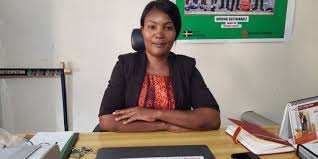

Conservationist, Kearns, names intolerance and digital media abuse as threats to media freedom
-


This Sudan war is too senseless; time we ended it, By Tee Ngugi
-


Former Zambian captain Rainford Kalaba discharged from hospital after near-fatal accident
-


‘Cyber Act fails to protect the vulnerable,’ Student demands media inclusivity for persons with disabilities
-


Media polarisation blamed for biased coverage, civil society leader calls for mindset shift
-
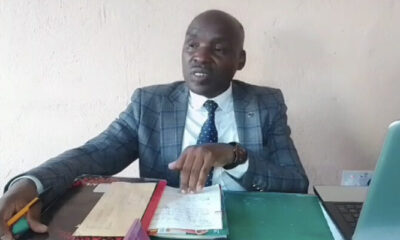

Luapula businessman, Munsanje, reflects on media freedoms and freedom of expression
Strictly Personal
This Sudan war is too senseless; time we ended it, By Tee Ngugi
Published
1 day agoon
April 28, 2024
Why are the Sudanese Armed Forces (SAF) and the paramilitary Rapid Support Forces (RPF) engaged in a vicious struggle? It is not that they have ideological, religious or cultural differences.
Not that people should fight because of these kinds of differences, but we live in a world where social constructions often lead to war and genocide. It is not that either side is fighting to protect democracy. Both sides were instruments of the rapacious dictatorship of Omar el-Bashir, who was overthrown in 2019.
Both are linked to the massacres in Darfur during Bashir’s rule that led to his indictment by the International Criminal Court for crimes against humanity. They both stood by as ordinary, unarmed people took to the streets and forced the removal of the Bashir regime.
None of these entities now fighting to the last Sudanese citizen has any moral authority or constitutional legitimacy to claim power. They both should have been disbanded or fundamentally reformed after the ouster of Bashir.
The SAF and the RSF are fighting to take over power and resources and continue the repression and plunder of the regime they had supported for so long. And, as you can see from news broadcasts, they are both well-versed in violence and plunder.
Since the fighting began in 2023, both sides have been accused of massacres that have left more than 30,000 people dead. Their fighting has displaced close to 10 million people. Their scramble for power has created Sudan’s worst hunger crisis in decades. Millions of refugees have fled into Chad, Ethiopia and South Sudan.
The three countries are dubious places of refuge. Chad is a poor country because of misrule. It also experiences jihadist violence. Ethiopia is still simmering with tensions after a deadly inter-ethnic war.
And South Sudan has never recovered from a deadly ethnic competition for power and resources. African refugees fleeing to countries from which refugees recently fled or continue to flee sums up Africa’s unending crisis of governance.
Africa will continue to suffer these kinds of power struggles, state failure and breakdown of constitutional order until we take strengthening and depersonalising our institutions as a life and death issue. These institutions anchor constitutional order and democratic process.
Strong independent institutions would ensure the continuity of the constitutional order after the president leaves office. As it is, presidents systematically weaken institutions by putting sycophants and incompetent morons in charge. Thus when he leaves office by way of death, ouster or retirement, there is institutional collapse leading to chaos, power struggles and violence. The African Union pretends crises such as the one in Sudan are unfortunate abnormally. However, they are systemic and predictable. Corrupt dictatorships end in chaos and violence.
Tee Ngugi is a Nairobi-based political commentator.
Strictly Personal
Air Peace, capitalism and national interest, By Dakuku Peterside
Published
2 weeks agoon
April 16, 2024
Nigerian corporate influence and that of the West continue to collide. The rationale is straightforward: whereas corporate activity in Europe and America is part of their larger local and foreign policy engagement, privately owned enterprises in Nigeria or commercial interests are not part of Nigeria’s foreign policy ecosystem, neither is there a strong culture of government support for privately owned enterprises’ expansion locally and internationally.
The relationship between Nigerian businesses and foreign policy is important to the national interest. When backing domestic Nigerian companies to compete on a worldwide scale, the government should see it as a lever to drive foreign policy, and national strategic interest, promote trade, enhance national security considerations, and minimize distortion in the domestic market as the foreign airlines were doing, boost GDP, create employment opportunities, and optimize corporate returns for the firms.
Admitted nations do not always interfere directly in their companies’ business and commercial dealings, and there are always exceptions. I can cite two areas of exception: military sales by companies because of their strategic implications and are, therefore, part of foreign and diplomatic policy and processes. The second is where the products or routes of a company have implications for foreign policy. Air Peace falls into the second category in the Lagos – London route.
Two events demonstrate an emerging trend that, if not checked, will disincentivize Nigerian firms from competing in the global marketplace. There are other notable examples, but I am using these two examples because they are very recent and ongoing, and they are typological representations of the need for Nigerian government backing and support for local companies that are playing in a very competitive international market dominated by big foreign companies whose governments are using all forms of foreign policies and diplomacy to support and sustain.
The first is Air Peace. It is the only Nigerian-owned aviation company playing globally and checkmating the dominance of foreign airlines. The most recent advance is the commencement of flights on the Lagos – London route. In Nigeria, foreign airlines are well-established and accustomed to a lack of rivalry, yet a free-market economy depends on the existence of competition. Nigeria has significantly larger airline profits per passenger than other comparable African nations. Insufficient competition has resulted in high ticket costs and poor service quality. It is precisely this jinx that Air Peace is attempting to break.
On March 30, 2024, Air Peace reciprocated the lopsided Bilateral Air Service Agreement, BASA, between Nigeria and the United Kingdom when the local airline began direct flight operations from Lagos to Gatwick Airport in London. This elicited several reactions from foreign airlines backed by their various sovereigns because of their strategic interest. A critical response is the commencement of a price war. Before the Air Peace entry, the price of international flight tickets on the Lagos-London route had soared to as much as N3.5 million for the economy ticket. However, after Air Peace introduced a return economy class ticket priced at N1.2 million, foreign carriers like British Airways, Virgin Atlantic, and Qatar Airways reduced their fares significantly to remain competitive.
In a price war, there is little the government can do. In an open-market competitive situation such as this, our government must not act in a manner that suggests it is antagonistic to foreign players and competitors. There must be an appearance of a level playing field. However, government owes Air Peace protection against foreign competitors backed by their home governments. This is in the overall interest of the Nigerian consumer of goods and services. Competition history in the airspace works where the Consumer Protection Authority in the host country is active. This is almost absent in Nigeria and it is a reason why foreign airlines have been arbitrary in pricing their tickets. Nigerian consumers are often at the mercy of these foreign firms who lack any vista of patriotism and are more inclined to protect the national interest of their governments and countries.
It would not be too much to expect Nigerian companies playing globally to benefit from the protection of the Nigerian government to limit influence peddling by foreign-owned companies. The success of Air Peace should enable a more competitive and sustainable market, allowing domestic players to grow their network and propel Nigeria to the forefront of international aviation.
The second is Proforce, a Nigerian-owned military hardware manufacturing firm active in Rwanda, Chad, Mali, Ghana, Niger, Burkina Faso, and South Sudan. Despite the growing capacity of Proforce in military hardware manufacturing, Nigeria entered two lopsided arrangements with two UAE firms to supply military equipment worth billions of dollars , respectively. Both deals are backed by the UAE government but executed by UAE firms.
These deals on a more extensive web are not unconnected with UAE’s national strategic interest. In pursuit of its strategic national interest, India is pushing Indian firms to supply military equipment to Nigeria. The Nigerian defence equipment market has seen weaker indigenous competitors driven out due to the combination of local manufacturers’ lack of competitive capacity and government patronage of Asian, European, and US firms in the defence equipment manufacturing sector. This is a misnomer and needs to be corrected.
Not only should our government be the primary customer of this firm if its products meet international standards, but it should also support and protect it from the harsh competitive realities of a challenging but strategic market directly linked to our national military procurement ecosystem. The ability to produce military hardware locally is significant to our defence strategy.
This firm and similar companies playing in this strategic defence area must be considered strategic and have a considerable place in Nigeria’s foreign policy calculations. Protecting Nigeria’s interests is the primary reason for our engagement in global diplomacy. The government must deliberately balance national interest with capacity and competence in military hardware purchases. It will not be too much to ask these foreign firms to partner with local companies so we can embed the technology transfer advantages.
Our government must create an environment that enables our local companies to compete globally and ply their trades in various countries. It should be part of the government’s overall economic, strategic growth agenda to identify areas or sectors in which Nigerian companies have a competitive advantage, especially in the sub-region and across Africa and support the companies in these sectors to advance and grow to dominate in the African region with a view to competing globally. Government support in the form of incentives such as competitive grants ,tax credit for consumers ,low-interest capital, patronage, G2G business, operational support, and diplomatic lobbying, amongst others, will alter the competitive landscape. Governments and key government agencies in the west retain the services of lobbying firms in pursuit of its strategic interest.
Nigerian firms’ competitiveness on a global scale can only be enhanced by the support of the Nigerian government. Foreign policy interests should be a key driver of Nigerian trade agreements. How does the Nigerian government support private companies to grow and compete globally? Is it intentionally mapping out growth areas and creating opportunities for Nigerian firms to maximize their potential? Is the government at the domestic level removing bottlenecks and impediments to private company growth, allowing a level playing field for these companies to compete with international companies?
Why is the government patronising foreign firms against local firms if their products are of similar value? Why are Nigerian consumers left to the hands of international companies in some sectors without the government actively supporting the growth of local firms to compete in those sectors? These questions merit honest answers. Nigerian national interest must be the driving factor for our foreign policies, which must cover the private sector, just as is the case with most developed countries. The new global capitalism is not a product of accident or chance; the government has choreographed and shaped it by using foreign policies to support and protect local firms competing globally. Nigeria must learn to do the same to build a strong economy with more jobs.
EDITOR’S PICK
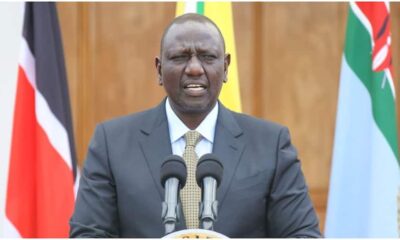

African leaders want record World Bank financing to address climate change
Ahead of a World Bank conference scheduled for later this year, African leaders on Monday called for rich countries to...


Conservationist, Kearns, names intolerance and digital media abuse as threats to media freedom
Nsama Kearns, the Executive Director of Care for Nature, speaks on the indispensable role of a free media in society....
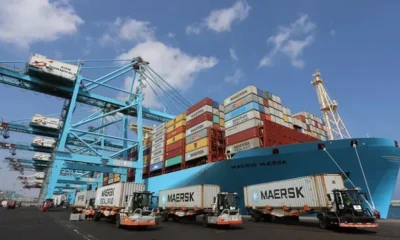

Nigeria gets $600 million investment from Danish firm Moller-Maersk
Nigeria’s presidency said on Sunday that President Bola Tinubu had secured an investment of $600 million from Danish shipping and...


Bolt Kenya teams up with M-KOPA to launch electric motorcycles
In a bid to improve driver earnings and combat climate change, ride-hailing platform, Bolt Kenya, has struck a partnership with...
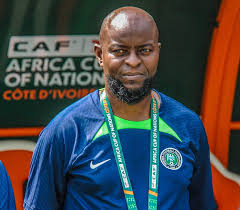

Nigeria’s football federation appoints Finidi George as Super Eagles coach
The Nigeria Football Federation (NFF) has approved the appointment of former international, Finidi George, as the new head coach of...
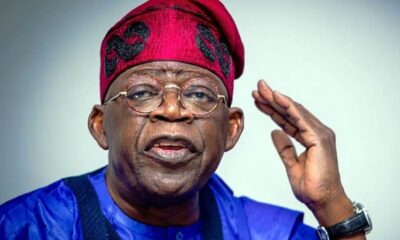

I saved Nigeria from bankruptcy by removing fuel subsidy— Tinubu
Nigerian President, Bola Tinubu, on Sunday, boasted that he saved Nigeria from going bankrupt by removing fuel subsidy on his...


Behind the News: All the backstories to our major news this week
Over the past week, there were lots of important stories from around the African continent, and we served you some...
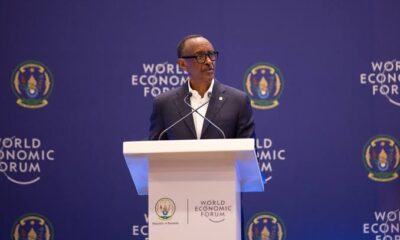

Video: How Rwanda is driving Ai revolution in Africa
In this video, the Managing Director of Rwanda’s Centre for the Fourth Industrial Revolution, Crystal Rugege, speaks on the country’s...


This Sudan war is too senseless; time we ended it, By Tee Ngugi
Why are the Sudanese Armed Forces (SAF) and the paramilitary Rapid Support Forces (RPF) engaged in a vicious struggle? It...
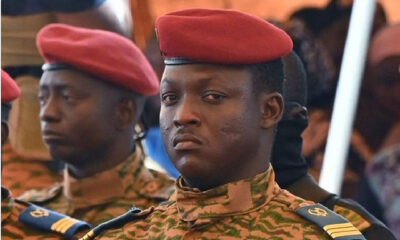

Burkina Faso investigating reports of northern killings
A government spokesman has revealed that Burkina Faso is looking into reports that 223 people were killed by the Burkinabe...
Trending
-

 Behind the News1 day ago
Behind the News1 day agoBehind the News: All the backstories to our major news this week
-

 Politics1 day ago
Politics1 day agoBurkina Faso investigating reports of northern killings
-
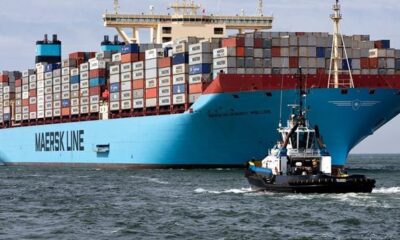
 Musings From Abroad2 days ago
Musings From Abroad2 days agoNigeria loses $9.2 billion to foreign shipowners
-

 VenturesNow1 day ago
VenturesNow1 day agoNigeria: Bureaux De Change operators to harmonise retail FX market


